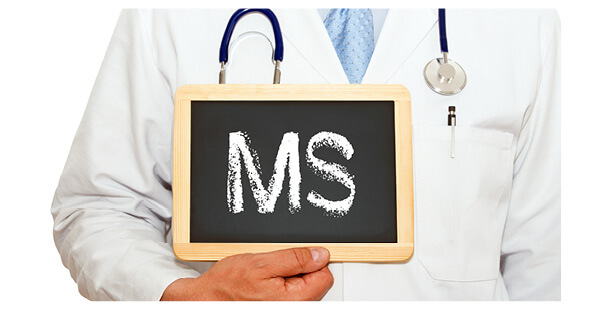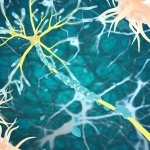An international study using stem cells to treat multiple sclerosis has been hailed a ‘game changer’ for sufferers of the condition.
The treatment involves wiping out patients’ immune systems with chemotherapy and then rebuilding it with autologous haematopoietic stem cell transplants. Results from the trial showed that it was able to stop the disease from progressing in participants, and also improved existing symptoms.
What did the study involve?
100 patients took part in the international trial, which treated people in hospitals in Sheffield, Chicago, Brazil and Sweden between 2005 and 2016. Each patient had relapsing remitting MS, which comes in waves and features relapses followed by periods of remission.
55 patients received stem cell transplantation and the other 50 were treated with a traditional drug therapy.
Patients’ conditions were measured using the Expanded Disability Status Scale (EDSS), which rates the severity of the condition between 1 and 10.
What did the study find?
After the first year, the disease only progressed in 3 of 55 (5%) patients who received a haematopoietic stem cell transplant compared with 34 of 55 (62%) in the control group.
Additionally, the proportion of patients with no remaining evidence of the disease was at 98% at one year in the stem cell group, compared to just 21% in the control group.
Prof John Snowden, haematologist and director of blood and bone marrow transplantation at Sheffield’s Royal Hallamshire Hospital, told the BBC:
“We are thrilled with the results – they are a game changer for patients with drug resistant and disabling multiple sclerosis”.
In 2018, Cells4Life attended the All-Party Parliamentary Group on Stem Cell Transplantation at the House of Commons where Mark Tammi MP chaired a meeting with two of the Professors involved in the Sheffield arm of the trial:
- Professor John Snowdon – Consultant Haematologist and Director of Blood and Marrow
- Professor Basil Sharrack – Consultant Neurologist and Director of the Sheffield MS Research Clinic
During the meeting, Professor Sharrack explained that the current strategies for treating multiple sclerosis involve the use of disease modifying drugs, which are very expensive over the period of a sufferer’s lifetime. Whilst the upfront cost of a haematopoietic stem cell transplant, around £30,000, sounds high, as a one-off treatment it is far more cost-effective in the long term and appears to deliver far better quality of life.
Professor Sharrack said: “The aim of using autologous HSCT to treat MS is to get to a point where the patient shows no evidence of disease activity”, which is defined as no relapses, no sustained disability progression and no MRI activity.
Colette Beecher, an MS patient, who was also in attendance at the APPG, talked about how MS had impacted her work and family life. Following her diagnosis, she tried two different types of drug therapy – but was still prone to relapses.
In 2016 she took part in one of the earlier clinical trials; she was apprehensive about the side effects of chemotherapy such has nausea and hair loss. However, her autologous HSCT was a success and she is now in good health and after two months was active again and after four months was back to work.
Talking about her treatment Colette said: “I now have the possibility of living a life without MS and contemplating a future without disability. This is a future that HSCT has given me”
Cells4Life recently attended the All Party Parliamentary Group on Stem Cell Transplantation at the House of Commons where Mark Tammi MP chaired a meeting with two of the Professors involved in the Sheffield arm of the trial:
- Professor John Snowdon – Consultant Haematologist and Director of Blood and Marrow
- Professor Basil Sharrack – Consultant Neurologist and Director of the Sheffield MS Research Clinic
During the meeting, Professor Sharrack explained that the current strategies for treating multiple sclerosis involve the use of disease modifying drugs, which are very expensive over the period of a sufferers lifetime. Whilst the upfront cost of a haematopoietic stem cell transplant, around £30,000, sounds high, as a one-off treatment it is far more cost-effective in the long term and appears to deliver far better quality of life.
Professor Sharrack said “the aim of using autologous HSCT to treat MS is to get to a point where the patient shows no evidence of disease activity”, which is defined as defined as no relapses, no sustained disability progression and no MRI activity.
Colette Beecher, an MS patient, who was also in attendance at the APPG, talked about how MS had impacted her work and family life. Following her diagnosis she tried two different types of drug therapy – but was still prone to relapses.
In 2016 she took part in one of the earlier clinical trials; she was apprehensive about the side effects of chemotherapy such has nausea and hair loss. However, her autologous HSCT was a success and she is now in good health and after two months was active again and after four months was back to work.
Talking about her treatment Colette said
“I now have the possibility of living a life without MS and contemplating a future without disability. This is a future that HSCT has given me”
Colette Beecher documented her journey in a blog www.coletteandhsct.wordpress.com
What is multiple sclerosis?
Multiple sclerosis is a disease of the brain and spinal cord affecting 1 in 1000 people in the UK. Nerve damage is caused when auto reactive cells attack the nerves and their protective coating called the myelin sheath. Patients also experience a variety of symptoms that can include difficulties with movement and speech. The causes of MS are unknown and the condition typically manifests in people in their 20s and 30s.

Request a Welcome Pack
Find out more about cord blood banking by downloading a Welcome Pack now.








